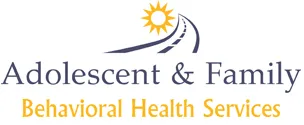Marcia Boatman, PhD, LPC, CAADC
Validating Grief during Mother’s Day
The miscarriage of my first child and the loss of my mother and my grandmother’s poor decisions were the main sources of grief during Mother’s Day. I know I’m not the only person who has experienced loss that has caused you to feel indescribable feelings. If you are a mother, then you have children who have expectations of you during this time and that can make it easier or harder for you. Whatever your situation may be, I would like to leave these recommendations:
Miscarriage Is a Loss
Twelve months after I miscarried, motherhood welcomed me with open arms. I was grateful and I have beautiful children. I overcame my issue with Mother’s Day. I learned women who want children but miscarry for whatever reason do not want to hear things like: “Sometimes it’s for the best” “You will probably get pregnant really fast now” “It might be a sign something was wrong with the baby” “Thank God you didn’t carry to full term and have a stillborn” A miscarriage is a loss and it should be acknowledged as such. Statements to minimize a person’s experience does not ease their emotional pain. I recognize we hate to see people hurt, but we need to accept our limited ability to change another person’s emotional state and allow them to feel what they feel. When people go through hard times and learn they can recover and move forward, they become resilient. Try validation instead: “I know this is hurting you and you don’t want to talk. I just wanted to say that I’m sorry for your loss.” “It’s normal for women who miscarry to feel a variety of emotions (angry, numb, depressed, shame, punished, etc.). I am sorry for your loss and if you need to talk I’m here for you.”
Grieving the Loss of Life
It has been almost 30 years since my mother died. I don’t feel sad and I am at a place where I have embraced my story and I practice introspection only in ways that are helpful for what is going on in my present. Focusing on the past just to sit in the depths of past sorrow is unhealthy because nothing back there is going to change. I challenge you to spend this Mother’s Day being grateful and enjoy the present moment. If you or someone you love is experiencing grief and loss this Mother’s Day, here is a good resource that validates a range of experiences. I realize, there are some people who grieve in a manner that can interfere with their daily functioning, but we should never judge how intense or how long a person grieves. There is no magic formula for grief and there are innumerable reasons why one person might seem to reach acceptance and recovery within months while another person might take a few years. Again, validate their loss and feelings. There is no need to say, “Don’t worry you’ll get over it.” Grief and loss is not something we “get over.” It is something we have to work out with acceptance. My dialectical conclusion is that Mother’s Day represents a combination of experiences from both the struggle and pain to radically accept the moments I never had with my mother and the love I couldn’t give her in life—AND—celebrating the awareness that God has put me on a different path. I have a loving family comprised of a wonderful husband and beautiful children. I cannot say that I get butterflies when I think about Mother’s Day, but the different narratives of motherhood in my life have certainly transformed me forever.

